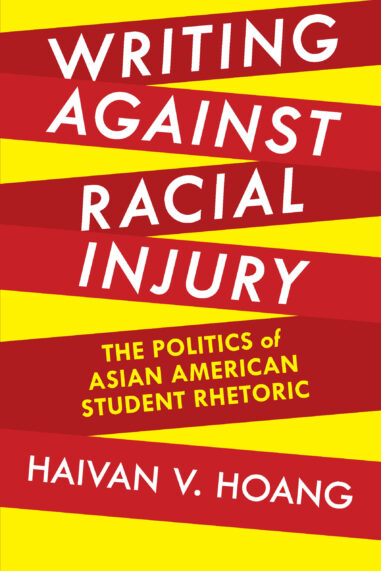Writing against Racial Injury recalls the story of Asian American student rhetoric at the site of language and literacy education in post-1960s California. What emerged in the Asian American movement was a recurrent theme in U.S. history: conflicts over language and literacy difference masked wider racial tensions. Bringing together language and literacy studies, Asian American history and rhetoric, and critical race theory, Hoang uses historiography and ethnography to explore the politics of Asian American language and literacy education: the growth of Asian American student organizations and self-sponsored writing; the ways language served as thinly veiled trope for race in the influential Lau v. Nichols; the inheritance of a rhetoric of injury on college campuses; and activist rhetorical strategies that rearticulate Asian American racial identity. These fragments depict a troubling yet hopeful account of the ways language and literacy education alternately racialized Asian Americans while also enabling rearticulations of Asian American identity, culture, and history. This project, more broadly, seeks to offer educators a new perspective on racial accountability in language and literacy education.



